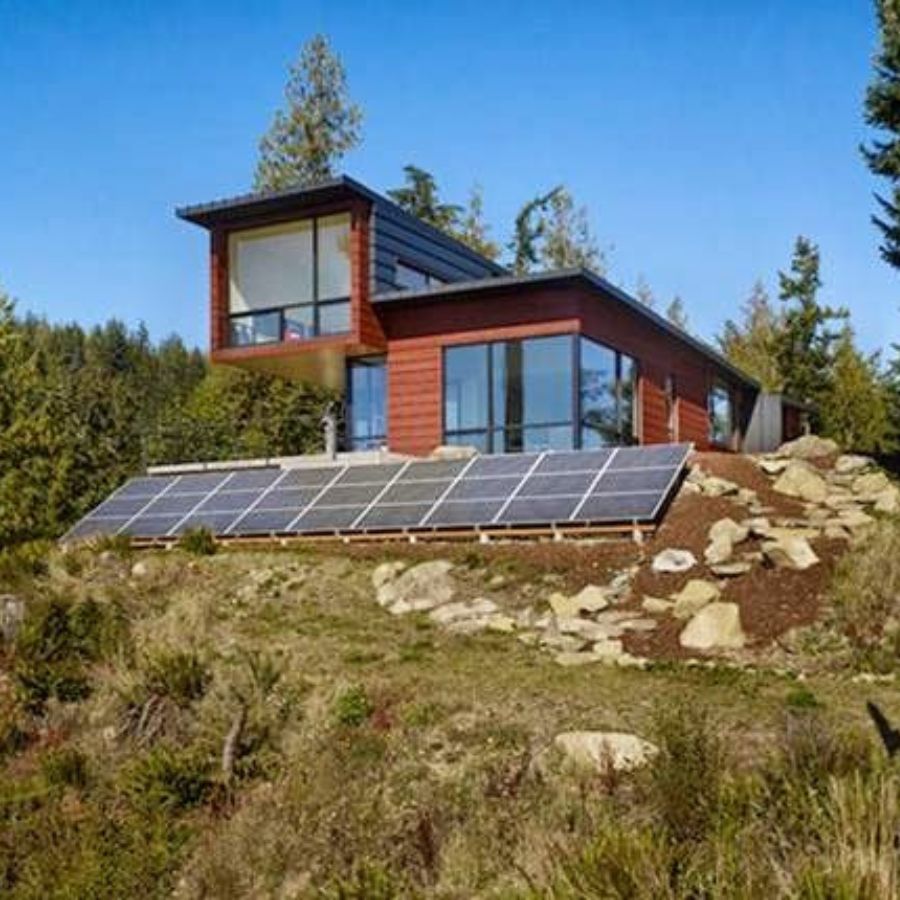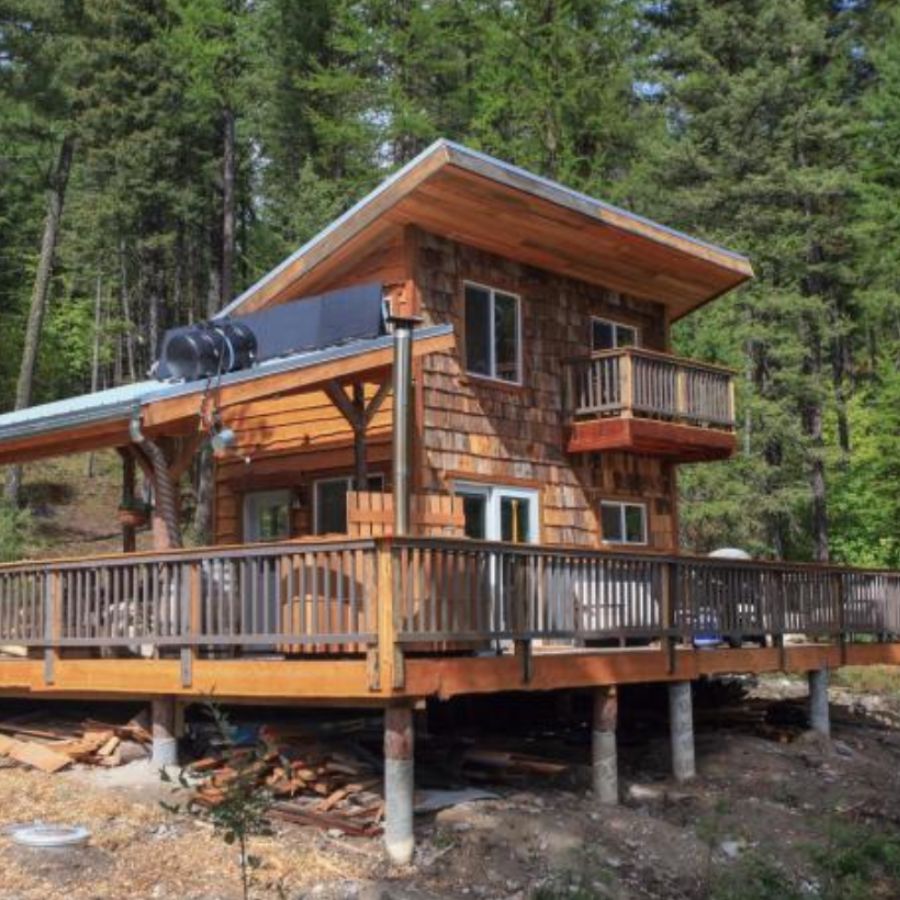Off-grid living has gained popularity recently as people seek to reduce their carbon footprint, save money, and become self-sufficient. In Ontario, off-grid living is a viable option for those who want to live independently and sustainably.
Finding the right solar installer isn’t hard, and using solar panels is one of the best ways to reduce your carbon footprint.
This article will explore the current state of off-grid living in Ontario, its benefits and challenges, and the resources available to those considering this lifestyle.
Current State
According to the latest census data, as of 2016, approximately 4.9% of Ontario households reported living off the grid. This number has likely increased as more people become interested in this lifestyle.
The Ontario government recognizes the importance of off-grid living and has taken steps to encourage it. For example, the province has developed an Off-Grid Renewable Energy Program that provides financial incentives to residents who install renewable energy systems, such as solar panels or wind turbines. The program helps residents become more self-sufficient and reduce their reliance on the grid.
Benefits of Off-Grid Living

Off-grid living has several benefits, including reduced energy costs and greater self-sufficiency. By generating their power, off-grid residents can save money on their energy bills and reduce their reliance on fossil fuels. It, in turn, reduces their carbon footprint and helps protect the environment. This article will explore the benefits of off-grid living in Ontario in detail.
Reduced Energy Costs
One of the primary benefits of off-grid living is reduced energy costs. With an off-grid system, residents can generate power and reduce dependence on local distribution companies. In addition, it means they are not subject to unexpected energy expenses or price increases. That can be especially valuable for those living on a fixed income.
An off-grid system can also provide energy independence and control over living conditions. Off-grid residents can choose their energy sources and have greater control over their energy consumption. In addition, they can choose to use renewable energy sources like solar power, which can provide long-term savings and reduce their carbon footprint.
Greater Self-Sufficiency
Off-grid living also provides greater self-sufficiency. Residents are not dependent on the grid for their power, which means they are not affected by power outages or other disruptions. They can generate their power and live independently, which can be especially valuable for those who live in remote areas.
Living off-grid means establishing complete freedom and control over one’s living conditions. It includes everything from heating and cooling to water and food. Off-grid residents can even use air-conditioning units, refrigerators, and other appliances with the help of their renewable energy sources. As a result, they can enjoy all the luxuries of modern living while reducing their environmental impact.
Energy Independence
Off-grid living also provides energy independence, which means residents are not subject to the fluctuating prices and supply issues that may arise from traditional energy sources. In addition, by relying on renewable energy sources, off-grid residents can be sure of a stable and consistent energy supply. That is even during periods of high demand or supply shortages.
Environmental Sustainability
Off-grid living in Ontario also helps protect the environment by reducing reliance on fossil fuels and promoting renewable energy sources. Ontario has set a target to reduce greenhouse gas emissions by 30% below 2005 levels by 2030, and off-grid living can play a significant role in achieving this target. In addition, by reducing their carbon footprint, off-grid residents are helping to protect the environment for future generations.
Financial Incentives
The Ontario government’s Off-Grid Renewable Energy Program provides financial incentives to residents who install renewable energy systems, which can help offset the initial cost of setting up an off-grid system. The program also offers technical assistance and training to help residents maintain their off-grid systems and ensure they are working efficiently.
Challenges of Off-Grid Living
While off-grid living has many benefits, it also presents several challenges. One of the biggest challenges is the initial cost of setting up an off-grid system. For example, installing a solar panel or wind turbine can be expensive, and the price may be prohibitive for some residents.
Initial Costs
The initial costs of setting up an off-grid system can be significant and may be a barrier for some residents interested in living off-grid. The expenses include purchasing and installing solar panels, wind turbines, batteries, and other components.
To help residents overcome this challenge, the Ontario government’s Off-Grid Renewable Energy Program provides financial incentives to those who install renewable energy systems. The program offers solar panels, wind turbines, and other equipment rebates. These incentives can offset the upfront costs of installing an off-grid system, making it more affordable for residents.
The program is by the Independent Electricity System Operator(IESO), which manages the province’s electricity system. The IESO also provides technical assistance to residents interested in installing off-grid systems. It includes information on equipment selection, installation, and maintenance.
The Off-Grid Renewable Energy Program is part of the government’s commitment to promoting clean energy and reducing greenhouse gas emissions. By encouraging residents to install renewable energy systems, the program helps to reduce Ontario’s reliance on fossil fuels. As well it supports the transition to a low-carbon economy.
Maintenance
Another challenge is the maintenance required to keep an off-grid system functioning. Maintaining an off-grid system is an ongoing process that requires dedication and effort from residents who live off-grid. Unlike grid-tied systems supported by local utilities, off-grid systems rely entirely on the homeowner’s ability to monitor and maintain equipment.
One of the most critical components of an off-grid system is the solar panel or wind turbine. These devices require regular maintenance to ensure they are working efficiently and effectively. For example, one must regularly clean the solar panels to remove dirt and debris that can reduce efficiency. In addition, wind turbines require regular inspections to ensure their blades function correctly and are damage-free.
Another essential component of an off-grid system is the battery bank. Batteries store the energy generated by solar panels or wind turbines, and one must monitor them regularly to ensure they are charged and function correctly. Residents must also be able to identify and troubleshoot any battery issues, such as low charge levels or defective cells.
Maintaining an off-grid system can be time-consuming and require specialized knowledge or expertise. However, many residents who live off-grid view the maintenance of their system as a way to establish greater self-sufficiency and control over their energy use.
To help residents maintain their off-grid systems, the Ontario government’s Off-Grid Renewable Energy Program provides technical assistance to homeowners. It includes information on equipment selection, installation, and maintenance. The program also offers training and workshops to residents who want to learn more about off-grid systems. It also helps those who want to learn how to maintain them properly.
Lifestyle Adjustment
Finally, off-grid living can be challenging for those who are used to living in a connected world. Off-grid residents may have access to different amenities or services than those on the grid. For example, they may need access to high-speed internet, making it challenging to stay connected with the rest of the world.
Off-grid living requires a significant lifestyle adjustment, especially for those who are used to the convenience of modern living. Off-grid residents must establish complete freedom and control over their living conditions, including growing food. They must be willing to live a simpler lifestyle and be self-sufficient.
Resources for Off-Grid Living in Ontario

Despite these challenges, off-grid living is viable for those committed to sustainability and self-sufficiency. Fortunately, many resources are available to help Ontario residents interested in this lifestyle.
The Ontario government’s Off-Grid Renewable Energy Program provides financial incentives to residents who install renewable energy systems. This program can help offset the cost of installing solar panels or wind turbines, making it more affordable for residents to become self-sufficient.
There are also many organizations and companies in Ontario that specialize in off-grid living. For example, Ontario Off-Grid Living provides information and resources for those who want to live off the grid. The company offers consulting services, installation services for solar and wind power systems, and education and training programs for those who want to learn more about off-grid living.
Another resource for off-grid residents in Ontario is the Ontario Sustainable Energy Association. This organization provides information and resources on renewable energy, energy efficiency, and sustainable living. In addition, they offer workshops, seminars, and conferences on various topics related to sustainability and off-grid living.
For those interested in off-grid living but still need to figure out where to start, many online communities and forums dedicate their time to this lifestyle. These communities provide a space for residents to connect with others living off the grid and share information, tips, and advice.
One such online community is the Off-Grid Ontario Facebook group, which has over 3,000 members. The group provides a space for residents to share their experiences, ask questions, and connect with others living off the grid in Ontario.
Conclusion
Off-grid living is a viable option for those who want to live independently and sustainably in Ontario. While it presents several challenges, many resources are available to help residents interested in this lifestyle. The difficulties include the initial cost of setting up an off-grid system and the maintenance required to keep it functioning correctly.
The Ontario government’s Off-Grid Renewable Energy Program provides financial incentives to residents who install renewable energy systems. Also, many organizations and companies in Ontario specialize in off-grid living. There are also online communities and forums where residents can connect with others living off the grid and share information and advice.
As the world becomes more focused on sustainability and reducing our carbon footprint, off-grid living will likely become an increasingly popular option. It will help those who want to live independently and sustainably. With the right resources and support, residents in Ontario can successfully live off the grid and enjoy the many benefits of this lifestyle.
